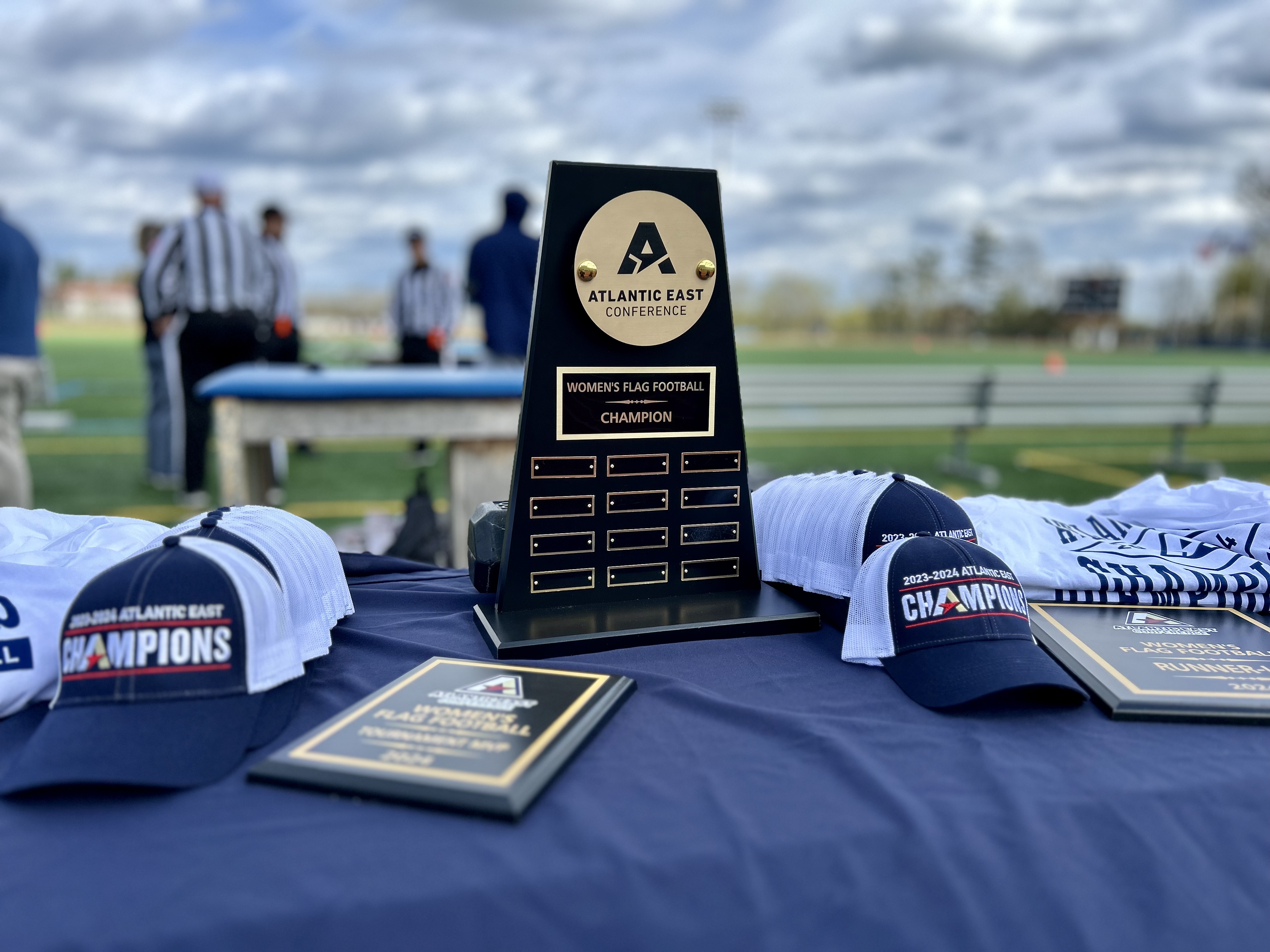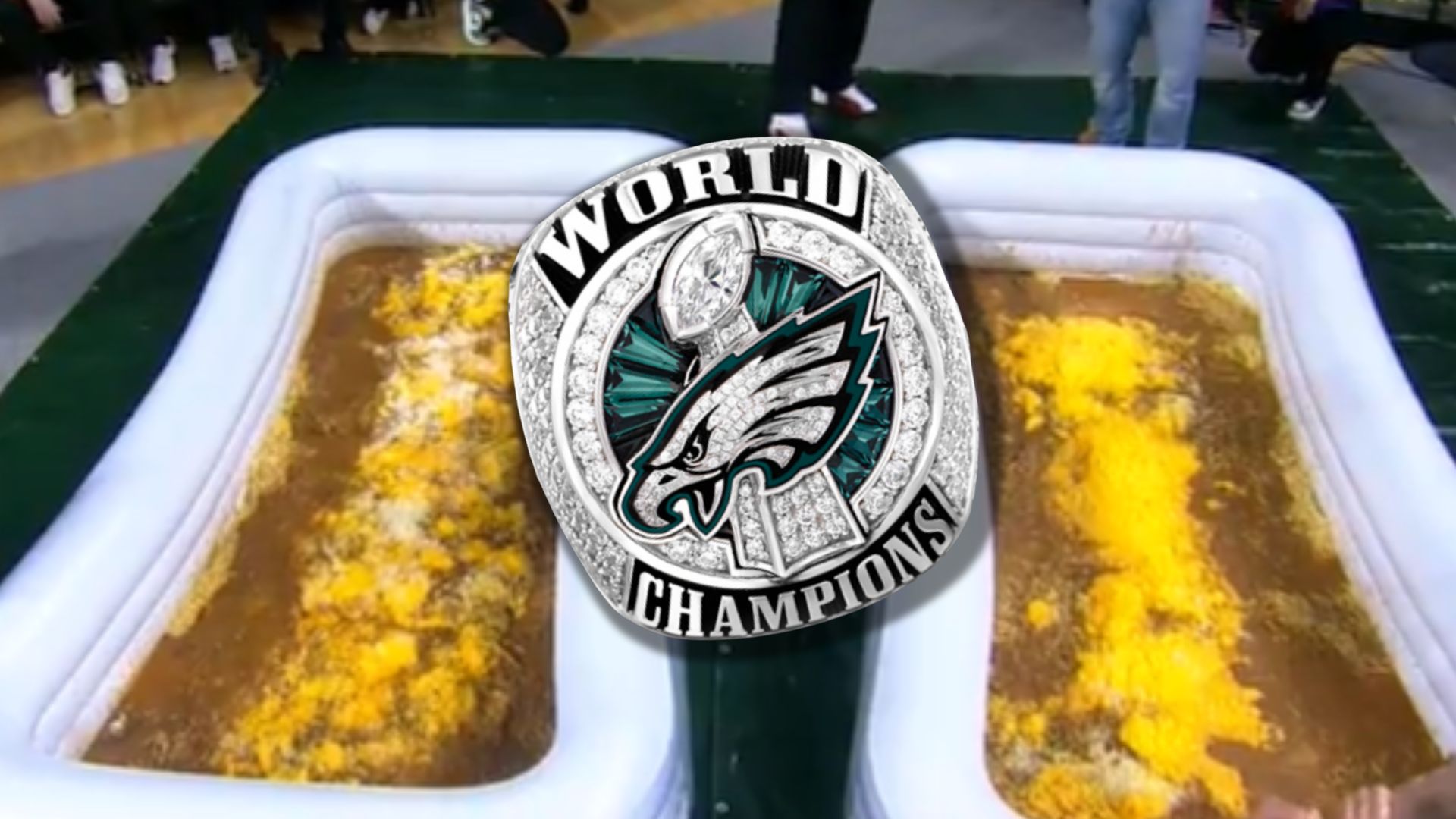It was a phone call Joe Walker had been waiting for his entire life.
And he didn’t answer it.
On April 30, Walker, the standout linebacker from Oregon, had been watching the third day of the NFL draft off and on throughout the afternoon from his family’s Southern California home. He thought there was a good chance he’d be selected that final day, but wasn’t quite sure. And as the day wore on, those chances grew slimmer and slimmer.
So when the Eagles finally called, Walker was already on another call with different team, talking about signing with them as an undrafted free agent at draft’s end. For a brief moment, he left the Eagles hanging and continued his conversation.
Then he looked up.
“It was coming down to the end (of the draft),” the soft-spoken Walker said recently during Eagles OTAs. “I saw my name up there on the TV and said ‘I’m going to have to call you back.’”
After hanging up, Walker quickly dialed back the Eagles, who had taken him with the 251st pick (out of 253) — a pick acquired from the Cardinals in exchange for quarterback Matt Barkley.
Philadelphia Eagles
Complete coverage of the Philadelphia Eagles and their NFL rivals from NBC Sports Philadelphia.
Coincidentally, Barkley and Walker both grew up in Southern California but had very different paths to the NFL. Barkley was the 2007 Gatorade Player of the Year and ESPN’s top-rated high school prospect in 2009, before taking his full ride to play quarterback for then-powerhouse USC.
Walker went to junior college, worked construction and had to earn his way into a Division I program.
The year off
Walker played his high school ball in Los Angeles at Palos Verdes High School, where he had a stellar career, but for whatever reason, didn’t garner attention from schools. Coming out of high school, Walker didn’t have a single offer from a Division I program.
To make matters worse, Walker tore his labrum during his senior season, and although he was able to play through the pain in high school, he needed surgery.
So instead of continuing his football career as a college freshman, Walker gray-shirted during the 2011 season at L.A. Harbor, a junior college near his home. He went to class, rehabbed his surgically repaired shoulder, and got a job.
Walker started working with his dad, for a construction company, putting together stages for concerts and events. He was in school full-time and went to his part-time job three or four days per week.
It was tough work, Walker said.
“I found out I didn’t want to do that,” Walker continued. “I was working like that and I realized I still wanted to play football.”
So Walker worked, but he also worked out. He became bigger and stronger, adding to his frame. He visited the team and his new coaches from time to time, but mostly worked out away from the program with a personal trainer.
His first college coach saw the incremental improvement during the year.
“It was a tough time for him, but I think at the end of the day, it was a blessing because the young man both in the classroom and in training really worked his butt off and really changed his body,” said Brett Peabody, who was Walker’s coach at L.A. Harbor and is now the head coach at Long Beach City College. “He’s always been able to run, but the way he changed his body and the muscle mass he was able to put on, it just made him a more dominant player. That really helped get him to Oregon.”
That was always the plan — get to a Division I program. Really, the plan was always to get to the University of Oregon, and Peabody knew the way.
Peabody had a long-standing relationship with Don Pellum, a long-time defensive coach and the recruiting coordinator for the Ducks.
“I knew what [Pellum] likes and what he was looking for and [Walker] had the athleticism but he also had the high work ethic, accountability and character that Coach Pellum wants,” Peabody said. “I told Joe, if you do all the things the right way with your training and school and everywhere else, I’ve got a damn good feeling Coach Pellum will want to take you.”
Peabody was right.
Getting to Oregon
While Walker played just one season at L.A. Harbor, it was a good one. In 2012, he was credited with 102 tackles (56 solo) and was ranked by Scout.com as the top junior college middle linebacker in the country.
Oregon and Pellum took notice and recruited him to Eugene.
“The first couple weeks, maybe months, it was shocking, but I got used to it pretty quick,” Walker said. “Everyone in Oregon was super helpful, so it was an easy transition.”
Over his three years at Oregon, Walker grew into one of the best defensive players on the Ducks’ roster. In 2014, he was named the program’s most improved player. Then in 2015, he led the team with 87 tackles and two fumble recoveries.
But he still wasn’t invited to the combine in Indianapolis.
“I wasn’t too worried,” Walker said about not getting an invite. “I was just thinking whenever I get a chance to get out there and perform, I want to be ready for that.”
Walker got his chance at Oregon’s pro day on March 10 and did very well. The 6-foot-2, 240-pound linebacker ran a 4.60 in the 40, had a 37.5-inch vertical jump, 124-inch broad jump, 23 reps on the bench press and a 6.81 in the 3-cone.
To put those numbers into perspective, his 40 time would have ranked fifth among linebackers at the combine, his vertical third, his broad jump fourth, his bench press third and his 3-cone second.
The Eagles obviously took notice, taking him with the third-from-last pick in the draft.
Life as an Eagle
Unlike most players from schools that operate on a quarters system, Walker has not been held captive. He started classes at Oregon in January of 2012 and graduated in December, which has allowed him to be with the Eagles throughout OTAs. He’s happy about being with the Eagles now, but it was even more important for him to graduate with a degree in Business and Economics. “You get a chance for a free education … I took it,” he said.
Acclimating to life as an Eagle in the NFL hasn’t been a breeze, but Walker said so far, it’s been a good experience. He’s been working exclusively at the MIKE position, but would be willing and able to play one of the other linebacker positions if the team asked.
The Eagles are obviously hoping Walker has a better career with the team than the last two Oregon linebackers to come through Philly: Kiko Alonso and Casey Matthews.
“Joe's going through a little different experience going from the system he played in college where he was a lateral player,” Eagles defensive coordinator Jim Schwartz said. “He wasn't attacking the line of scrimmage, north-south guys, more lateral. So he's learning on the way. But he's shown he can make a play in the passing game. He's a good athlete, he's long, he's hard to throw.”
The Eagles don’t have much linebacker depth, which helps Walker’s chances to make the team. But a seventh-round draft pick has to be more than a backup position player. He has to be able to play special teams. That just happens to be an area where the athletic Walker excelled in college.
And since he’s been with the Eagles, he’s already been thrown into the mix with the special teams units.
“Bringing back a name from the past, I could see him being a Larry Izzo type guy,” Peabody said, comparing Walker to the former NFL linebacker who never started a game, but played 13 years, with three Pro Bowls and three Super Bowl rings to show for it.
“A guy that plays 10 years in the NFL just because he does everything the teams wants him to do. They can trust him, they can count on him. Whatever it may be, Joe can do it.”



